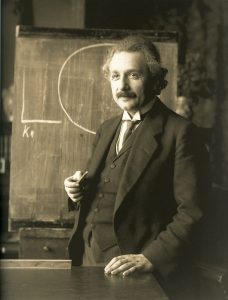 Newtonian gravitation is able to explain and describe the behaviour of objects in the solar system – due to the absence of large gravitational masses – with great precision; there are some exceptions, such as the anomalous motion of the perihelion of Mercury.
Newtonian gravitation is able to explain and describe the behaviour of objects in the solar system – due to the absence of large gravitational masses – with great precision; there are some exceptions, such as the anomalous motion of the perihelion of Mercury.
General relativity is more accurate, but the greater mathematical difficulty of handling it means that Newton’s theory is still used for the launch and control of satellites and space probes. In rare cases, the time delay caused by gravity must be taken into account. The popular and useful Global Positioning System, known by its acronym GPS, is one such case. The system is based on a network of 24 satellites orbiting 20,000 kilometres above the earth at a speed that allows them to circle approximately twice a day. Each satellite carries a high-precision atomic clock, whose time difference with the base satellite allows it to locate a body on the Earth’s surface that interacts with the satellites using radio waves emitted by a GPS receiver – it is sufficient for the body to interact with three of the 24 satellites. The GPS system achieves an accuracy of up to 15 metres, but this has to take into account relativistic effects on time measurement.
The clocks on the satellites move at 14,000 kilometres per hour relative to the Earth’s clock, which, taking into account special relativity, means a delay of 7 millionths of a second per day. At the same time, they undergo a gravity that is a quarter of that experienced by the clock on Earth, which using general relativity means an advance of 45 millionths of a second per day. Combining the two variations, we get an advance of 38 millionths of a second each day. If this lead were not taken into account, the accumulated errors of the GPS system on the position of an object on Earth would be as much as ten kilometres per day! So these 38 millionths of a second must be continuously and meticulously adjusted, otherwise the navigators would start to fail within a few minutes of use.
References
A.J. Durán, El universo sobre nosotros, Crítica, Barcelona, 2015.

La gravedad está relacionada con la masa que es energía entre el campo de Higs y la materia
La gravedad es una fuerza fundamental, es la primera de todas. Da a la materia la forma de relacionarse